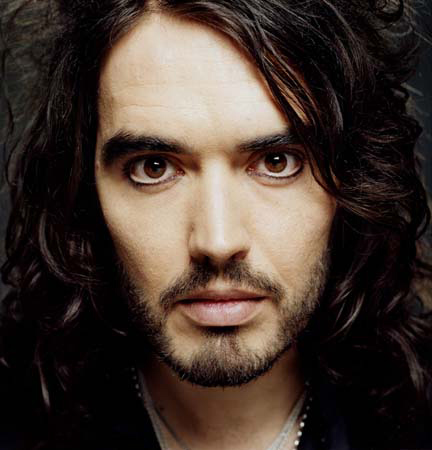Originally published on the NORML UK blog on August 24th, 2012.

By Sarah McCulloch
THERE’s been a bit of a stir in our little world recently. First, Russell Brand, heroin addict-turned-funny-man decided to put out a documentary saying that abstinence-only programmes are the only way to deal with addiction and methadone treatment for heroin users is useless. Secondly, we put out a testimonial from a former cancer sufferer who put his remission down to cannabis oil. Both seem to have caused a fuss on our Facebook page, and both have a common theme – someone telling their story of what worked for them out of compassion for people going through the same thing. We should learn from both.
Now I like Russell, ever since I bought and read his first autobiography and found it that there was more to him than a really nice beard. A top-rate brain ticks beneath that fine, luxurious mane. It’s therefore disappointing to discover that Russell Brand really believes that, if he can just stop taking drugs (in his three month residential treatment programme that most addicts can’t hope to access), then everyone can. Because that’s not what we should take away from his programme. In it, he explicitly refers to Amy Winehouse, who tragically died at the age of 27 from alcohol withdrawal – someone who died because she stopped using drugs totally. How can we then take from this documentary that abstinence is an effective treatment for everyone when Russell’s own examples contradict his point?
You’ve got to work out what worked for you. Some people can just stop, some people have to reduce their use slowly, and some need alternatives like methadone. Russell himself knows this given in the programme that got him off drugs he was prescribed Subutex, an opiate blocker that stops you getting high from heroin even if you use it. But the International HIV Alliance has already replied to Russell regarding the necessity of simple interventions like methadone, clean needles, and safer injecting rooms to deal with our global heroin problem, so I won’t say any more than that.
I think relatively few of the people using this are going to end up on heroin, so a simpler analogy. When my mum decided to give up smoking, she wrote down the day’s date on a piece of paper, tucked it inside her last cigarette packet – and then never smoked again. That was that. When I decided to give up smoking, I got my little NHS Stop Smoking app on my phone, put in the date – and kept right on smoking. It wasn’t until I met someone who had bought an e-cigarette and got a disposable one of my own that I also stopped. Different things work for different people. We have to look at the evidence and act accordingly.

Which is what we were doing when we published Dave’s thoughts on his cancer story. People have been toting round cannabis as a cure for everything in the last few centuries, including gout, tetanus, cholera, depression, insomnia, migraines, coughing, and, brilliantly, treating opiate or alcohol addiction. I doubt Russell would approve. So it’s unsurprising that we would see claims that cannabis can cure that most lethal of problems, cancer. It is also equally unsurprising that we would see people pooh-poohing such a belief. What we have to do is look at the evidence. That is what Dave was trying to do, to look at what was working for others, and trying it on himself when all else had failed. For him, his experience seems to suggest that cannabis helped. How? That’s what we have to work out.
Does abstinence-only treatment work? The evidence suggests that it doesn’t for most (actually, the evidence suggests the best thing we can do is just give heroin addicts lifelong prescriptions for heroin, but few politicians like that idea). Can cannabis cure cancer? The jury is still out on that one as the research is being done. But what we can say is that, if people like Dave (and Russell) weren’t out there telling their stories, we wouldn’t be bothering with research at all – no-one’s investigating the potential cancer-curing properties of grapes, after all.
So, we need everyone to keep telling their stories, so that in the cut and thrust of the debate, the truth can be set free. And as long as people have a story to tell, NORML UK will publish it for them. Have you tried cannabis as a treatment, for cancer, or anything else? How did that work out for you? Write to us at norml@norml-uk.org. We’d love to help you tell your story.